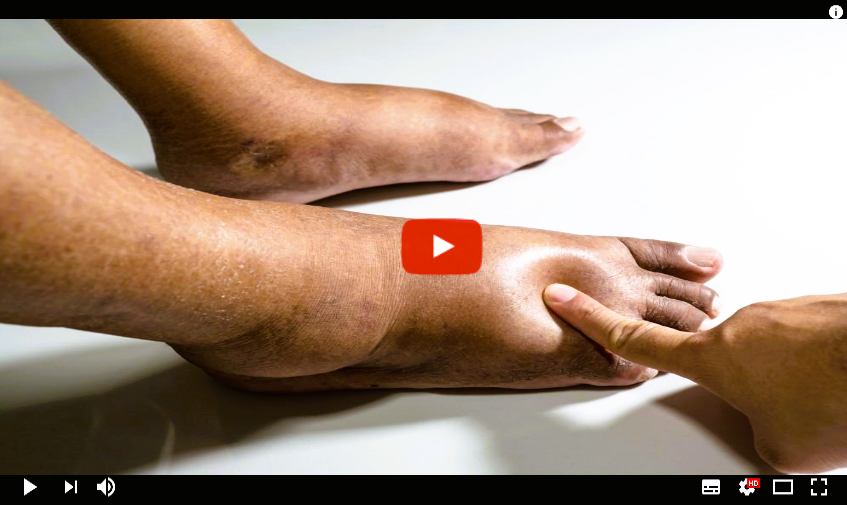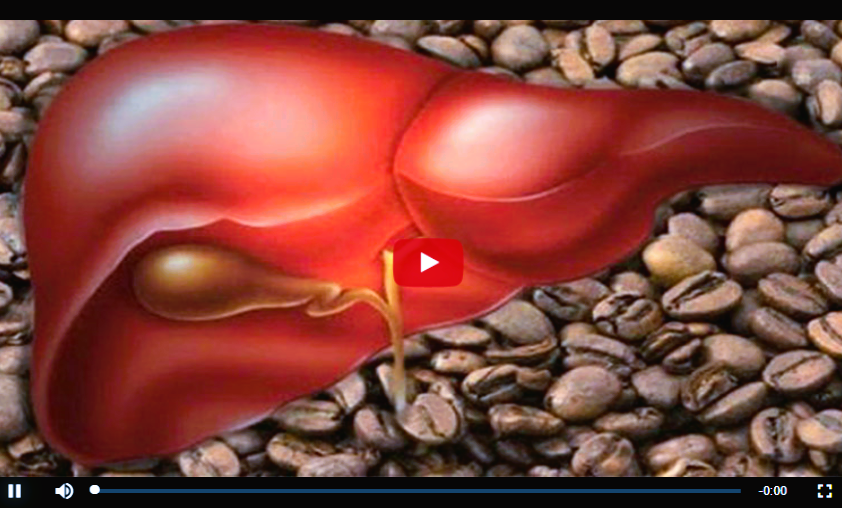Coffee vs. Tea! Health Benefits of Coffee: Parkinson’s Disease, Type 2 Diabetes, Heart Health, Liver Cancer and Obesity
Medeea Greere, an independent publisher, is now on Telegram at https://t.me/AMGNEWS2022 and exists only on reader support as we publish Truth, Freedom and Love for public awareness. Thank You for your support!
When people think of coffee, they usually think of its ability to provide an energy boost. However, according to some research, it can also offer some other important health benefits. Such benefits may include a lower risk of liver cancer, type 2 diabetes, and heart failure.
Worldwide, experts estimate that people consume around 2.25 billion cups of coffee per day. Researchers have looked at the benefits of drinking coffee for conditions such as diabetes, cardiovascular disease, inflammatory bowel disease, and liver disease.
Coffee contains a number of useful nutrients, including riboflavin (vitamin B2), niacin (vitamin B3), magnesium, potassium, and various phenolic compounds, or antioxidants. Some experts suggest that these and other ingredients in coffee can benefit the human body in various ways. This article looks at the health benefits of drinking coffee, the evidence supporting those benefits, and the risks of drinking coffee.
Health benefits of drinking coffee
Some potential health benefits associated withTrusted Source drinking coffee include protection against type 2 diabetes, Parkinson’s disease, liver disease, and liver cancer. Coffee consumption may also support cardiovascular health. The sections below cover these benefits in more detail.
Coffee and diabetes
Coffee may help protect against type 2 diabetes. In 2022, researchers who gathered data on over 48,000 people found that those who increased their coffee consumption by at least one cup per day over 4 years had an 11% lower risk of type 2 diabetes than those who did not increase their intake.
A 2017 meta-analysisTrusted Source concluded that people who drank four to six cups of either caffeinated or decaffeinated coffee each day appeared to have a lower risk of metabolic syndrome, including type 2 diabetes.
WARNING: Scientific Research – Green Veggie Causing Type 2 Diabetes In Millions. Big Diabetes Lie Presentation From the Doctors!
Coffee and Parkinson’s disease
Various studies have suggested that caffeine, which is present in coffee and many other beverages, may help protect against Parkinson’s disease. One team concluded that men who drink over four cups of coffee per day might have a fivefold lower risk of Parkinson’s disease than those who do not.
The findings of the 2022 meta-analysisTrusted Source suggested a link between coffee consumption and a lower risk of Parkinson’s disease, even among people who smoke. This team also found that people who drink coffee may be less likely to experience depression and cognitive conditions such as Alzheimer’s disease. However, there was not enough evidence to prove that drinking decaffeinated coffee helps prevent Parkinson’s disease.
Coffee and chronic liver disease or cancer
In 2019, a literature reviewTrusted Source concluded that coffee intake is likely to reduce the risk of liver cancer. Earlier, in 2018, a cohort study of a multiethnic population in the United States suggested that depending on the dose, consuming two to three cups of coffee daily reduced the participants’ risk of developing hepatocellular carcinoma and chronic liver disease (CLD) by 38% and 46%Trusted Source, respectively.
The meta-analysis from Trusted Source also concluded that consuming any type of coffee appears to reduce the risk of liver cancer, nonalcoholic fatty liver disease, and cirrhosis. These findings are now bolstered by a 2021 study Trusted Source suggesting that consuming all types of coffee may offer some protection against CLD.
Coffee and other liver diseases
People who consume coffee may also have a lower risk of gallstone disease.
In 2014, researchers looked at coffee consumption among people with primary sclerosing cholangitis (PSC) and primary biliary cirrhosis (PBC). These are autoimmune conditions that affect the bile ducts in the liver.
They found that people with PSC were more likelyTrusted Source to have a lower coffee intake than those without the condition. There was no evidence to suggest that coffee intake was different among people with or without PBC. Also, another 2021 study suggested a link between coffee consumption and a lower risk of dying from nonviral hepatitis-related cirrhosis. The researchers suggested that drinking two or more cups of coffee every day might reduce the risk by 66%Trusted Source.
The 2022 meta-analysisTrusted Source found that caffeine consumption may have at least a small benefit for cardiovascular health, including blood pressure.
In a 2021 study, researchers found that drinking three to five cups of coffee per day may reduce the risk of cardiovascular disease by 15%. Drinking one to five cups daily also seemed to be associated with lower overall mortality resulting from any cause.For those people who have already experienced a heart attack, drinking coffee does not appear to increase their risk of experiencing another or dying as a result.
The 2017 meta-analysis, however, also found that there may be higher levels of blood lipids (fat) and cholesterol in people who consume more coffee. These substances may predispose a person to heart problems.
Coffee and obesity
There is some evidence suggesting that consuming coffee may help people lose weight. One 2018 paperTrusted Source indicated that the more coffee the participants drank, the higher their mean reduction in weight, body mass index (BMI), and fat mass.
A 2019 studyTrusted Source suggested that drinking coffee may have a modest association with weight loss, with a greater association in men than in women. However, these results have not been replicated, so they may not be definitive.
Although coffee may provide some benefits in reducing obesity, it is not a substitute for eating a balanced diet and exercising often.
Nutritional value
One hundred milliliters (about 3.3 ounces [oz]) of regular black coffee (without milk or cream) is low in calories. That is about one typical cup of black coffee, and it only contains around 2 calories. However, adding cream or sugar will increase the calorific value.
Coffee beans also contain polyphenols, which are a type of antioxidant. Antioxidants can help protect the body against free radical damage. Free radicals are a type of waste product that the body naturally produces as a result of certain processes.
Free radicals act as toxins in the body and may cause inflammation. Scientists have found links between inflammation and various aspects of metabolic syndrome, including type 2 diabetes and obesity.
In 2018, some researchersTrusted Source suggested that the antioxidant content of coffee may offer protection from metabolic syndrome.
Although scientists can prove that certain compounds are present in coffee beans, it remains unclear what happens to them once they enter the human body.
Risks
Drinking a lot of coffee can also have some adverse effectsTrusted Source. These may include the following.
Bone fractures
Some studies have suggested that women who drink a lot of coffee may have a higher risk of bone fractures.
Men with a higher coffee intake, on the other hand, appear to have a slightly lower risk.
Complications during pregnancy
Coffee consumption may also not be safe during pregnancy. In fact, there is some evidence to suggest a link between high coffee consumption and pregnancy loss, low birth weight, and preterm birth.
SEE ALSO: Green Glucose – Weight loss, Blood Sugar, Digestion. All in One
Endometriosis
There may be a higher risk of endometriosis among women who drink coffee, but there is not enough evidence to confirm such a link.
Gastroesophageal reflux disease
People who drink a lot of coffee may have a slightly higher risk of this condition.
Anxiety
Consuming high amounts of caffeine may increase the riskTrusted Source of anxiety, especially among people with panic disorder or social anxiety disorder. Less commonly, caffeine may trigger mania and psychosis in those who are susceptible.
Mental health conditions
One study from 2016Trusted Source concluded that a high intake of caffeine during adolescence could lead to permanent changes in the brain.
The scientists behind the study expressed concern that this could increase the risk of anxiety-related conditions in adulthood.
Exposure to toxic ingredients
In 2015, a group of researchers found relatively high levels of mycotoxins in commercial coffee. Mycotoxins are toxic substances that can contaminate coffee as a natural product.
Side effects
Although consuming caffeine may offer some benefits, there can be negative side effects if a person drinks too much of it. These side effects may include:
-
adverse interactions with particular, medications such as certain psychiatric drugs, thyroid medications, heartburn drugs, and antibiotics
-
possible spinal bone loss in women who drink more than 300 milligrams (mg) per day and who do not consume enough calcium
-
gastrointestinal problems
-
an increase in blood pressure
-
an increase in the risk of myocardial ischemia, which is a type of heart disease, if a person consumes coffee during exercise
-
fertility difficultiesTrusted Source
-
negative effects on a growing fetus, such as low birth weight, if a person consumes a large amount of coffee during pregnancy
-
irritability and insomnia in nursing infants, if a person consumes coffee during lactation
-
dehydration, but this is not conclusive and may be limitedTrusted Source to excessive caffeine consumption
-
worsened symptoms of certain mental health conditions, such as schizophrenia or bipolar disorder
-
an increased risk of suicide
-
coffee-specific disordersTrusted Source, which include:
-
caffeine intoxication (or overdose)
-
caffeine-induced anxiety disorder
-
caffeine-induced sleep disorder (or insomnia)
-
caffeine-related disorder not otherwise specified
-

Coffee vs. tea
However, although the amount of caffeine in each beverage can depend on the type of coffee or tea, generally, one 8-oz cup of coffee contains about 95 mg of caffeine. Similar-sized cups of black and green tea contain only 48 mg and 29 mg of caffeine, respectively.
There may be some differences in the way that drinking tea and coffee may impact different people, depending on which beverage they prefer and how much of it they consume.
According to a 2018 study that compared the positive effects of coffee and tea consumption, the differences in benefits are as follows:
| Type | Benefit |
|---|---|
| Coffee | Coffee may decrease the risk of mortality from heart disease and cancer, specifically in women. Coffee may also decrease the risk of respiratory mortality, specifically in men. Women who drink only coffee or up to 40%Trusted Source tea may have the lowest overall mortality from various conditions, but those who drink higher percentages of tea may have a higher mortality risk. |
| Tea | Tea may decrease the risk of mortality from heart disease and cancer, specifically in men. Also, men who drink 30–50% tea may have the lowest mortality risk compared with those who only drink coffee. |
The overall conclusion of the study is that coffee and tea both have their own benefits depending on the quantity consumed, and these benefits may vary among men and women. The difference in impact based on sex may be related to how coffee affects sex hormones.








![JUST IN: JFK, TRUMP, ELON, SPACE FORCE, WEAPONIZED WEATHER, BITCOIN, PEPE, “COVFEFE”, Q, AND JESUS — MILITARY OPERATIONS, DIVINE TIMING, DIGITAL WARFARE: IT’S ALL CONNECTED AND IT’S HAPPENING NOW! [WATCH]](https://amg-news.com/wp-content/uploads/2024/12/JFK-TRUMP-ELON-SPACE-FORCE-WEAPONIZED-WEATHER-BITCOIN-PEPE-COVFEFE-Q-JESUS-450x318.png)






2 Comments
FROM NOW ON I DRINK PROPERLY MADE COFFEE STRAIGHT FROM THE COFFEE BEAN
I DRINK TWO CUPS OF COFFEE A DAY THAT’S PROPERLY MADE COFFEE 100% ARABICA